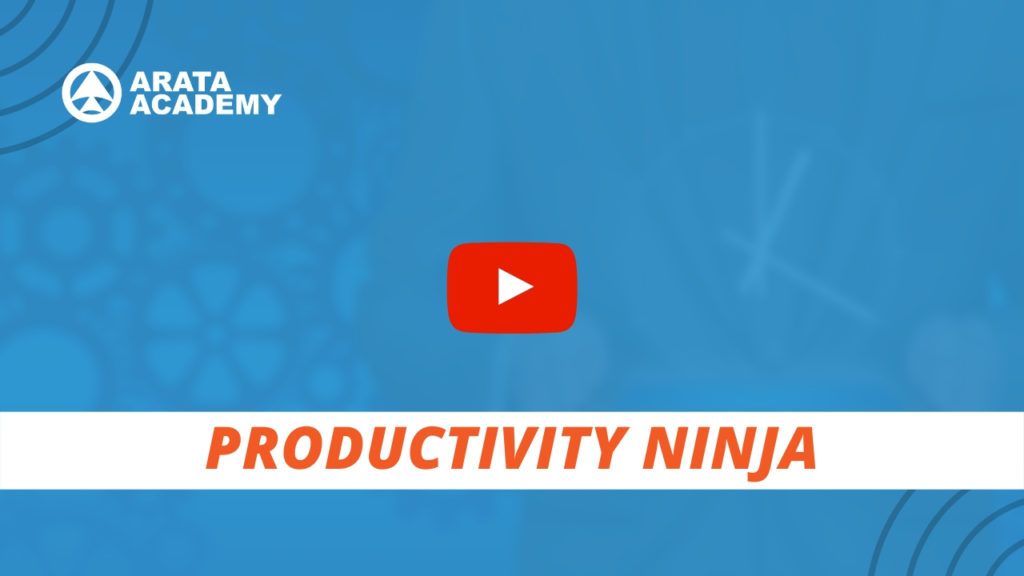Hello! Seiiti Arata If you are the type of person who is always busy, we need to talk. And don’t tell me you are busy!
I am sure you know someone who is always busy, who always has something to do and has no time for anything.
The more things they get done, the more commitments they make right after that. So, they are always busy.
For example: let’s say one of the tasks in your to-do list is to clean up your desk. Once you finish, you remember you had some books that you don’t need anymore, but that you don’t want to throw away either.
Then you add a new task to your list: to go to a library or bookshop to sell or give those books away. Every time we are done with a task, we feel with have an opportunity to add more things to do to our list.
So, that’s why it’s an illusion to believe that by completing out tasks faster, we will have more free time. The truth is that we will try to fill up every new “free space” in our agenda. We will never have free time.
1. Don’t take more than you can handle
Trying to do many things at the same time means a lack of experience with time management and not being able to prioritize what’s most important.
What is productivity for you? Do you think being productive is doing twice the work in half the time? No that, if you do twice the work, you might end up with twice the new things to do after that.
That’s the problem with taking more than you can handle, it is simply impossible to finish everything. But don’t get me wrong, I believe that it’s good to have big plans for our futures, big dreams and work hard to accomplish them.
But at the same time, we’ve got to think of realistic plans. Things that we can really do. Otherwise, we will end up feeling constantly angry and frustrated for not being able to finish anything as we wanted. And besides, sooner or later we will earn a bad reputation for making promises to so many people and not being able to fulfill them. So, you should think about it the next time you promise to attend and event.
When making plans, arranging meetings with people, managing your schedule, always remember the first tip we mentioned here: don’t bite off more than you can chew, or don’t take more than you can handle.
Keep in mind the commitments you have already made. Think about whether they are really important. This is important to keep a balance in your life. To be aware of your limitations is a good way to exercise humility and wisdom. And it will help you to implement our next tip:
2. Keep your priorities in order
It’s likely you will end up wasting your time dealing with small things that do not add any value or bring any results to your life.
Now, let’s make the next exercise together: go grab a notebook and a pen. Then, take five minutes to write all the things in your to-do list. Include everything you can think about. From people you need to get in touch with, to emails you need to send, payments to make, books to finish, movies you want to watch, projects to complete at your office, everything! Then, pause this video and write down your list.
Ready? So, as a rule, only one out of ten items you wrote down are actually important. You can leave the rest for later, or just forget about them. Let me tell you why.
If you spend your time doing all those unimportant small things, you will never have time do to more important things. You will be always in a rush, not having enough time for anything.
So, relax, keep in mind sometimes you just to put some things aside for your own good.
3. The art of delegation
Maybe there were some things on your list that, even though they are not priories, you feel you just cannot put aside. Well, in that case, maybe they need to get done, but not necessarily by you.
So, you need to learn to involve others to work for you, as part of your team.
But I am not saying you should employ people to work for you. But well, if you happen to own a company, it could be a good idea. However, I want you to think about a more general concept of team.
Which of the activities you do as part of your daily life could be done by a member of your family? Which could be done by one of your colleges at work? Or how about hiring a freelancer to do some of those things for a few dollars?
Now, if you think it would be difficult to find someone as experienced or talented as you to do those tasks, then it would be good if you documented your “process” or taught others how to do it your way. That is the art of delegating. You need to be able to give clear instructions for other people to follow them.
In our course Ninja Productivity, you can find out more details on how to delegate those less important tasks. Click here to get more information about the course.
Many people write to us asking for exercises to work on the tips we have shared here. So, for those of you who requested it, here is a bonus tip that can help you to apply what we have learned today to your routine.
Every morning, during your breakfast, before getting to work, ask yourself: “If I could only accomplish one and only one task, what would it be?” What is the most important task in your list?
Write down your answer, because that is the path that will lead you to having more free time and being more productive. I just recorded a new video, especially for you who are always busy.
Click on this link and enjoy:

